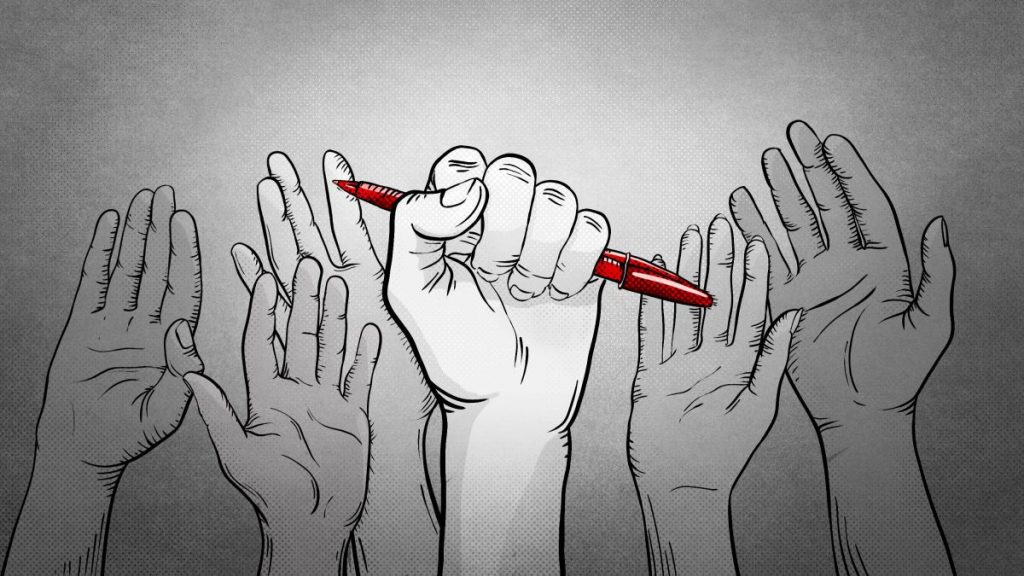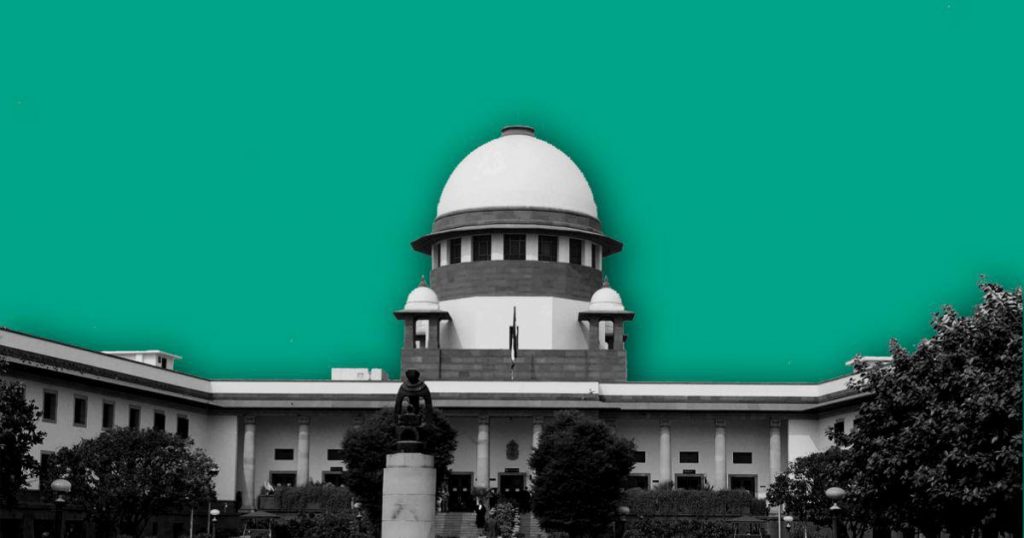
Freedom of speech is the essence of the active existence of human beings as a social unit. Everyone is entitled to express their own thoughts, opinions, and views which broaden an individual’s perspective on various matters and issues. Media, regarded as the fourth pillar of democracy, plays a huge role in influencing and shaping the general public’s thought process and approach towards regional, national, and international subjects. Therefore the freedom of media is something that shouldn’t be interfered with as the media has the utmost crucial role of publishing about the issues that matter to us and providing criticism and debate to ensure that that information is tested and examined from all points of view.
The issue arises only when the freedom of media exceeds its reasonable limits and ends up infringing the right to privacy. The right to privacy is equally important for securing individuals’ autonomy. In order to practice true freedom of speech, especially online, privacy is also needed. Individuals who lack privacy are incapable of thinking and talking freely, as well as developing their voices. This article seeks to explore how these two rights are correlated and how both of them can be exercised without coming into conflict.
Introduction

Freedom of expression is a universal human right. In the contemporary world, almost every single act online is an act of expression. Article 19(1)(a) of the Constitution of India guarantees all citizens the right to freedom of speech and expression. Freedom of speech and expression essentially means the right to express one’s opinions freely by word of mouth, writing, printing, pictures, or any other mode. The right to propagate or publish the views of other people is also included under this. Media is a fundamental aspect of a democratic society. Merriam-Webster describes media as, “a medium of cultivation, conveyance, or expression”.
In simple words, media can be regarded as the communication channels through which we circulate news, music, movies, education, promotional messages, and other data. It consists of physical and online newspapers and magazines, television, radio, billboards, telephone, the Internet, fax, and billboards. Privacy in an Indian context is a typically hard subject to define as it’s a concept that many still cannot decipher. The right to privacy is one such right that has come to its existence after expanding the dimensions of Article 21, which is multi-dimensional in nature and regarded as the “heart of the fundamental rights”.
Article 21 of the Constitution assures the life and personal liberty of all persons. It guarantees the right of persons to live with human dignity rather than living just an animalistic life. The Constitution specifically doesn’t grant any right to privacy as such. However, such a right has been weeded out by the Supreme Court from Art. 21 and many other provisions of the constitution read with the Directive Principles of State Policy. The right to privacy and freedom of expression are two sides of the same coin. The capability to act without being observed was essential to the act of expression so we benefited from privacy as we expressed ourselves freely by living our personal, political, and professional lives.
Freedom of Speech vs. Right to Privacy – A Question?

The Chinese government has installed software that monitors and censors specific anti-government websites. Journalists and human rights activists from Bahrain to Morocco have their phones tapped and their emails scrutinized by security services. Facebook has taken down wall posts after States made complaints of “subversive material”. Google has handed over user data that consists of IP addresses, location data, and records of communications to law enforcement authorities. The US government has conducted huge surveillance of foreign phone and internet users. Every single one of these acts violates both an individual’s freedom to express themselves, and their right to maintain a private life and private communications. Privacy and free expression are essential prerequisites to each other. Both are necessary for the enjoyment of the other.
To freely formulate and convey one’s political, religious, or ethical beliefs one needs a separate, private space that’s free from intervention. Similarly, violations of the right to privacy, be it physical or online surveillance, monitoring of communications or activities, intrusion of the state in private, family or home affairs, etc. suppress an individual from exercising their free speech and expression.
With the ever-growing role and duty of media in daily life, it is more vital than ever for the media to recognize its limits. The media has a responsibility to protect the dignity of persons by respecting the privacy of others. Even though India has freedom of speech and expression, it is bound to reasonable restrictions under Article 19(2) of the Constitution such as Sovereignty and Integrity, Security of the state, Friendly relations with foreign states, Public order, Decency or morality, Contempt of Court, defamation or incitement to any offenses. As a result, we can say that freedom of speech and expression is limited. The limitations must be followed in order to preserve the integrity of individuals and the nation.
Does the Judiciary uphold Right to Privacy over Freedom of Speech?

In R. Rajagopal v State of Tamil Nadu(1994), Auto Shankar, who was sentenced to death for committing six murders, revealed in his autobiography, his relations with a few police officials. The Supreme Court dealt with the question on right to privacy and observed that the right to privacy is included and implied in the right to life and liberty guaranteed to the citizens by Article 21 of the Constitution.
It is also a ‘right to be left alone.’ “A citizen has a right to safeguard the privacy of his own, his family, marriage, procreation, motherhood, child-bearing and education among other matters.” The publication of any of the previously said personal information without the consent of the person, whether the information is accurate or inaccurate would amount to a violation of the right to privacy of the person and will be liable for damages. The only exception is when a person voluntarily accepts controversy or such publication is based on public records, then there is no violation of privacy.
In People’s Union Of Civil Liberties vs Union Of India(1996), which is famously known as the wire-tapping case, the question before the court was whether wire-tapping was an infringement of a citizen’s right to privacy. The court held that any violation of the right to privacy would depend on the facts and circumstances of a case. It was noted that “telephone conversation is an important facet of a man’s private life. Right to privacy would certainly include telephone conversations in the privacy of one’s home or office. Telephone tapping would violate Article 21 of the Constitution of India unless it is approved under the procedure established by law.” It was later observed that the right to privacy also derives from Article 19 for “when a person is talking on the telephone, he is exercising his right to freedom of speech and expression.”
In Kharak Singh v. State of U.P(1962), where police surveillance was being challenged on account of violation of the right to privacy, the Supreme Court stated that domiciliary night visits were violative of Article 21 of the Constitution and the personal liberty of an individual. The court, therefore, has interpreted the right to privacy not as an absolute right, but as a limited right to be regarded on a case-to-case basis.
The Hon’ble Supreme Court ruled in the vital case of Justice K. S. Puttaswamy (Retd.) v. Union of India in 2017 that “The right to privacy is one of the liberties guaranteed under Part III of the Constitution and is covered under Article 21 as an integral aspect of the right to life and personal liberty”. It’s necessary to consider the rationale behind media freedom when we seek to balance privacy and press freedom. As the SC explained in The Indian Express Case (1985), press freedom exists for the benefit of citizens in a democracy. In the infamous Shilpa Shetty case, the Bombay high court has attempted to balance the right to privacy and the public right to know. It was stated that just because Shilpa Shetty is a public figure, it doesn’t mean that she has sacrificed her right to privacy guaranteed under the Constitution of India.
Concluding the Discussion
The right to privacy has not been fully developed in India mainly due to the stereotypical notion amongst most Indians that “privacy is a Western concept”. However, we have seen various instances where the media acted as judge, jury, and executioner in news cases and declared a verdict before the court passes its judgment. The deaths of Aarushi Talwar in 2008 and Sheena Bora in 2015 were highly targeted by Indian media, and most recently, the death of Indian actor Sushant Singh Rajput has gathered similar media coverage, which once again lead to a conflict with the fundamental human right to privacy. Justification of such acts of the media, where they deliberately overstep their boundaries by using the excuse of “media freedom” is tone-deaf and vile in my opinion.
With the rising role and responsibilities of media in every individual’s daily life, the media needs to recognize its boundaries. Media has the duty to respect and uphold the dignity of individuals by acknowledging their privacy. Media should never prevail over an individual’s right to privacy and sufficient clarifications and legislation are to be made regarding the control and management of the same.